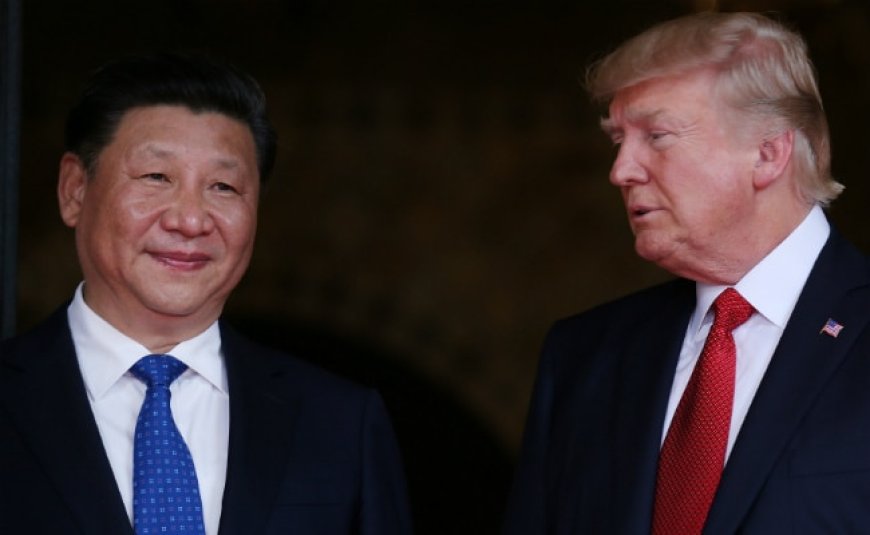Opinion: How China Quietly Made New Friends To Prepare For Trump 2.0
Trump's stance on China is no longer a one-dimensional tale of bluster and bravado. His outreach to Xi - whether strategic, self-serving, or both - suggests he's playing a more complex game.

Opinion: How China Quietly Made New Friends To Prepare For Trump 2.0
In recent years, China's growing diplomatic strategies have caught the attention of global analysts, especially as the political landscape evolves in the United States. With the possible return of Donald Trump to the presidential office, it is crucial to understand how China is recalibrating its foreign relationships to strengthen its position on the world stage. This article explores the subtle but impactful steps taken by China to forge new alliances and friendships as a preparation for Trump 2.0.
The Shift in Global Alliances
China's diplomatic approach has shifted dramatically over the past few years. While the United States navigates its political future, China has utilized this uncertainty to cultivate ties with various nations across different continents. From engaging with emerging economies in Africa to strengthening relations with traditional allies in Asia and Europe, China is redefining its global friendships. These alliances are not just transactional; they are a strategic maneuver aimed at countering the potential challenges posed by a resurgent America.
Building Relationships with Developing Nations
One of the most remarkable aspects of China's diplomatic tightening is its focus on developing countries. China has been heavily investing in infrastructure projects, providing financial aid, and increasing trade relations with nations that feel marginalized by Western powers. Countries in Latin America, Africa, and Southeast Asia have seen heightened engagement with China, which positions itself as a benevolent partner. This strategy not only fosters goodwill but creates a buffer for China against potential economic sanctions or political criticisms from the West.
The Role of Economic Diplomacy
China’s economic diplomacy has proven to be a strong tool in cementing its relations with various nations. Through initiatives like the Belt and Road Initiative (BRI), China is not only investing in physical infrastructure but also increasing its influence over trade routes and strategic resources. Such economic partnerships help China secure a loyal friend base in regions that are critical for its trade and supply chains. The idea is to create interdependence which would deter nations from opposing China's policies when faced with pressure from the United States under Trump’s administration.
Cultural Diplomacy as a Soft Power Tool
In addition to economic ties, China is leveraging cultural diplomacy to enhance its soft power. Educational exchange programs, cultural festivals, and art exhibitions are just a few ways it aims to project a positive image globally. By fostering cultural understanding and appreciation, China seeks to lay the groundwork for long-term friendships that will prove beneficial as international relations fluctuate with the political tides in the U.S.
Preparing for Unexpected Challenges
The geopolitical chessboard is ever-changing, and China’s diplomatic moves seem to suggest a proactive approach to prepare for various outcomes stemming from a possible Trump 2.0. By forging new alliances now, China is positioning itself to better handle potential economic sanctions, tariffs, or political isolation that may arise from a more nationalist U.S. foreign policy. The focus on building reliable partnerships creates a network of allies who may come to China's aid in challenging situations.
Conclusion
As the world watches the unfolding of the global political landscape, China is quietly but strategically enhancing its diplomatic footprint. By reaching out to new partners and solidifying existing relationships, China is not just anticipating the challenges a Trump administration may bring; it is also reshaping the global balance of power in its favor. The efforts made today will likely define the dynamics of international relations in the coming years, ensuring that China remains a formidable player regardless of the changes in leadership in the U.S.
For more updates, visit dharmyuddh.com. Keywords: China diplomatic strategy, Trump 2.0 foreign policy, China new alliances, economic diplomacy China, cultural diplomacy China, global alliances, Belt and Road Initiative, U.S. China relations, geopolitical strategy China, developing nations partnership.







